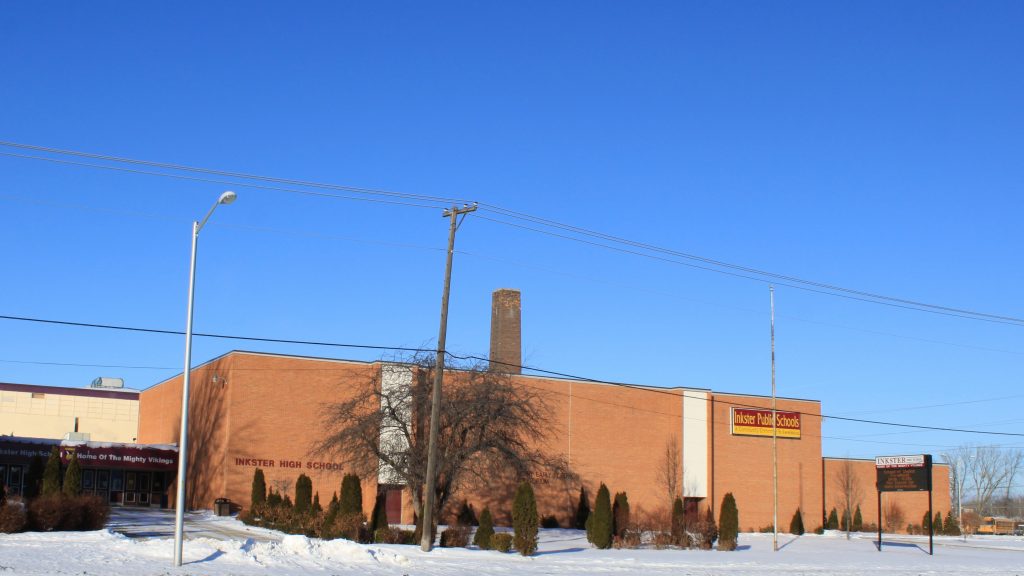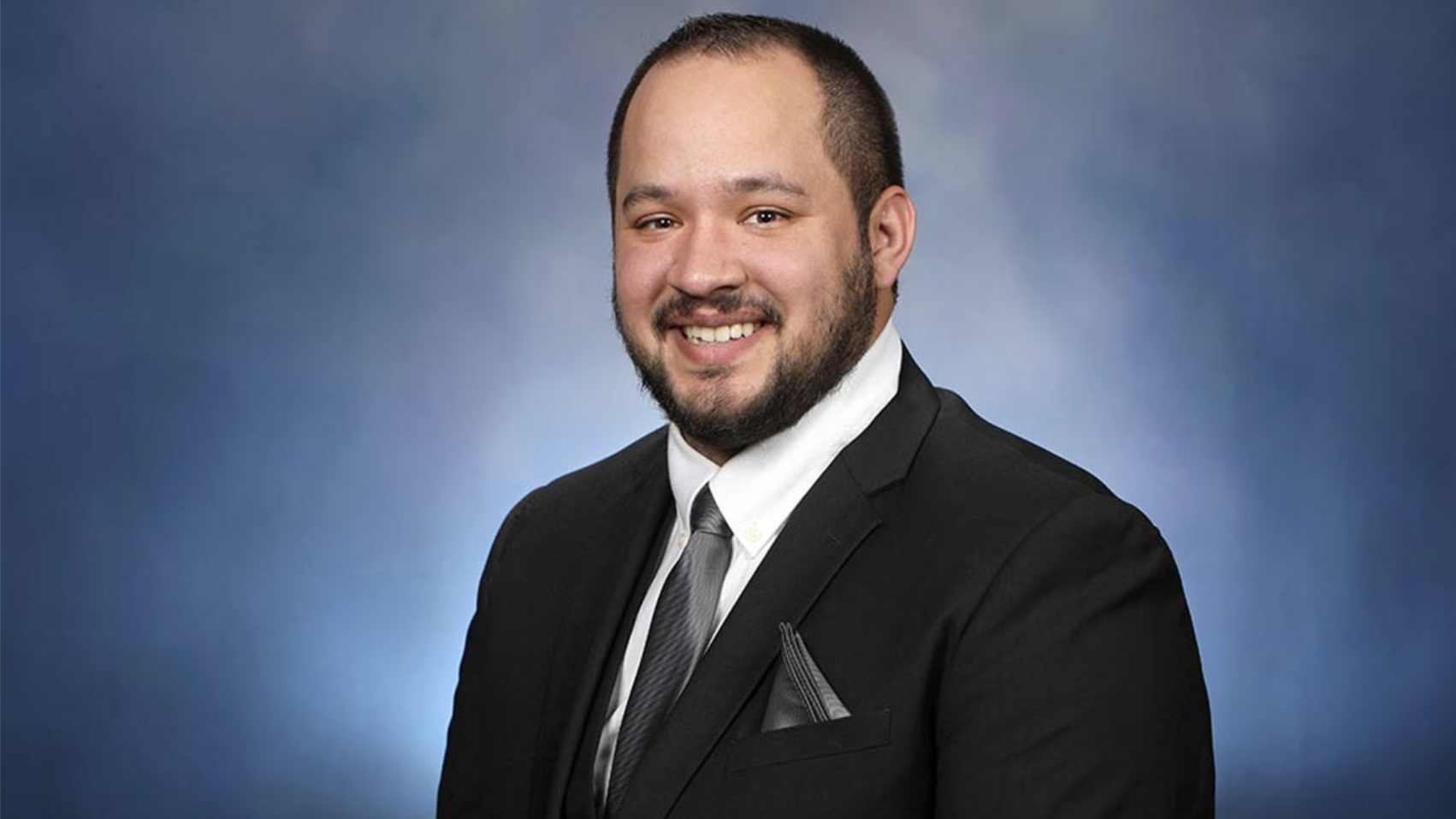State Rep. Dylan Wegela: Funding to erase $12M Inkster school debt rights ‘historic’ wrong
The Inkster Public Schools district was dissolved in 2013 by then-Gov. Rick Snyder and the Republican-controlled Michigan Legislature.

Former Inkster High School.
Officials in Inkster are celebrating funding approved by the Michigan Legislature and Gov. Whitmer that erases nearly $12 million of debt left over after the city’s school district was dissolved a decade ago.
Prior to the passing of House Bill 4292, Inkster taxpayers had been saddled with covering the red ink for a school system that no longer exists.
State Rep. Dylan Wegela, whose 26th district includes Inkster, says the debt relief helps right what he calls a “historic” wrong.
Listen: State Rep. Dylan Wegela speaks on Inkster school debt relief
The following interview has been edited for clarity.
Michigan State Rep. Dylan Wegela: The reasoning the public schools existed in the first place was because of racial redlining. So when the district was shut down in 2013, the kids were divided into four different school districts, dividing the community up, making it very difficult for kids to participate in after-school programming, etc. And there was this legacy debt that was left over from that closure that residents have been paying on. So by finally paying this debt off, I see it as a way for us to make things right out of our past mistakes and shutting down the districts and the history of redlining in this area. But also, it’s going to lower the tax rates for residents who are in those boundaries, because instead of paying the maximum millage rate to pay the debt off, they’ll pay the rates of the districts that the kids actually go to.

Quinn Klinefelter, WDET News: How did Inkster get into such debt in the first place?
We looked into this a lot, and it’s a little bit complicated. But the main driver was the district lost a lot of enrollment over the course of several years. Some of the things that happened at that time that contributed to it was the lift on charter school caps in the state of Michigan. So a lot of charter schools started opening up across the state when that cap was lifted – and Inkster Public Schools was affected by that. There’s other factors that go into it, such as the way that historically we’ve graded schools based on standardized test scores, which is an inequity. Essentially, the idea is you can predict a student’s standardized test scores based on their household income. And then we assign schools different grades. And that changes the way communities view schools. Combining that with the charter school capping removed can lead people to leaving schools, thinking that they’re not as good as they actually are because of some standardized test scores that come out.
“Republicans have been using emergency manager laws for the state to takeover districts and it hasn’t gone well.” – State Rep. Dylan Wegela
How did that lead to a debt then? Because people were leaving the schools?
Any district that loses thousands in enrollment is going to lose their pure-pupil funding from the state. And no matter how good you are at budgeting, in my view, it’s almost impossible to make up for that drastic loss in such a short period of time.
Some Republicans in the Legislature have criticized the funding for the debt relief. They said they had low-income residents in their areas too. But they say their districts are not getting “bailed out.” One said it sends a message to school districts to make bad financial decisions and don’t worry about it, because the rest of the state will save you anyway. What’s your reaction to those comments?
I think that that’s a really interesting way to put it. Republicans have been using emergency manager laws for the state to takeover districts and it hasn’t gone well. It takes away local control from communities. It hasn’t produced the results that they would like. And I think it’s actually contributed to making some of these problems worse. But I would say we should be looking at any policy at the state level that can help kids out and help communities out. And this is righting a historical wrong. So I think it’s a baseless criticism.
Why say it’s a historical wrong? Some people would say it was because of bad financial problems, whether they were decisions or just how things worked out.
Because the ways we’ve developed education policy over the last 40 years, before Democrats had the trifecta in state government, has led to a lot of these problems. We’ve had harmful policies that have hurt low-income communities across the state. And most low-end communities are generally communities of color, communities that don’t have as good of education funding because of the way we do property taxes in the state of Michigan and some other factors as well.
I’ve heard some officials in Inkster say that this debt relief could pave the way for resurrecting the school district. Is that even possible?
I think certainly anything’s possible. I think there are a lot of discussions that need to be had on that particular issue within the community. So I think that will remain to be seen. I do think there’s a case to be made that maybe a six-and-a-half square mile city shouldn’t have four separate school districts. That’s quite highly unusual. Garden City, which is where I live, is a neighboring community and we just have one school district, not four separate ones. So I think there there’s some good points to be made, the city falling under one school district would make sense. But how to get there is beyond my pay grade. Hopefully the community can get together to figure that out.
Is there a desire to have an extra school district again?
Absolutely. Schools are fundamental to community. There are a lot of families that went through the entire Inkster public schools. They have their Vikings trophies in their homes. It’s celebrated. And I think that there is a desire to bring back the district. But I think, again, it remains to be seen. There’s so many conversations that we need to have before anything like that could happen.
Trusted, accurate, up-to-date.
WDET strives to make our journalism accessible to everyone. As a public media institution, we maintain our journalistic integrity through independent support from readers like you. If you value WDET as your source of news, music and conversation, please make a gift today.
